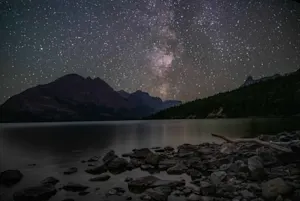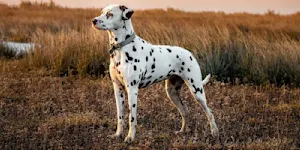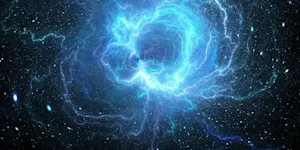What Makes This Word Tick
"Hazy" evokes an image of a blurred or unclear atmosphere, like a morning when the fog refuses to lift. It's often used to describe weather, memories, or even thoughts that aren't sharply defined. A beautifully versatile word, "hazy" has a gentle, almost poetic quality to it, tiptoeing into realms where reality and ambiguity meet.
If Hazy Were a Person…
Hazy would be that soft-spoken artist down the street who wears oversized sweaters and gets lost in daydreams. Always a bit elusive, they move with a languid grace, leaving a trail of mystery and wonder. They remember the past fondly, though never with precision, and adore gentle shades over stark contrasts.
How This Word Has Changed Over Time
Originally derived from the word "haze," which referred to a fine dust or smoke in the air, "hazy" has broadened its meaning over the centuries. Today, its metaphorical use is as popular as its literal one, describing not just atmospheric conditions but also unclear situations and vague recollections.
Old Sayings and Proverbs That Use Hazy
While "hazy" may not appear directly in ancient proverbs, its essence can be found in sayings about fog and mist, such as "Lost in a fog" or "Through the mist," suggesting uncertainty and lack of clarity.
Surprising Facts About Hazy
Did you know that haze can be caused not just by weather but by pollutants like dust and smoke, which scatter sunlight and obscure visibility? "Hazy" days aren't just for sleepy towns by the sea — they're an urban phenomenon too, albeit less romantic!
Out and About With This Word
Next time you're out and about on a foggy morning, remember the word "hazy" captures that soft veil over the landscape. Or perhaps use it to describe your lingering recollection of a long-past summer evening, where details are just out of reach, but emotions stay vivid.
Pop Culture Moments Where Hazy Was Used
In the world of pop culture, "hazy" has been dusted across lyrics, like in the song “A Hazy Shade of Winter” by Simon & Garfunkel, capturing feelings of nostalgia mixed with poignant reflection. It dances through lines in films, often used in scenes depicting dream sequences or flashbacks.
The Word in Literature
In literature, "hazy" often appears when an author needs to evoke a mood of uncertainty or introspection. You might find it nestled in a passage about a protagonist reflecting on a pivotal yet unclear event from their youth, or when describing the soft ambiance of a landscape painter’s misty morning.
Moments in History with Hazy
Consider the day after the 1815 eruption of Mount Tambora, which led to the "Year Without a Summer." A haze from volcanic ash spread across the sky, casting a spectral glow that inspired years of dark romantic literature. It was a scene "hazy" might describe perfectly, blending beauty with gloom.
This Word Around the World
In French, "brumeux" might come close, while in Japanese, "ぼんやり" (bonyari) describes a mental haze or fuzziness. Whether it’s Venice’s "nebbia" or the "smog" in L.A., the concept of "hazy" is universally appreciated, painting a picture of mystery and uncertainty.
Where Does It Come From?
"Hazy" springs from "haze," which traces back to the 17th century, likely from the Middle English word "hasen," meaning "to dry-ash." Related to dust and smoke, its origins are as dreamy as the word's current use.
How People Misuse This Word
"Hazy" is sometimes used interchangeably with "foggy," though technically, haze denotes finer, drier particles than fog. It's also casually used for "confusing," though it implies a softer ambiguity rather than outright bewilderment.
Words It’s Often Confused With
Foggy: Tends to involve moisture and thicker visibility obstruction.
Misty: Suggests dampness and white obscuration.
Blurry: Used more often to describe visual impairment or unclear images.
Additional Synonyms and Antonyms
Synonyms include nebulous, blurred, and indistinct, which share "hazy’s" abstract quality. Antonyms like clear, sharp, and distinct push back against the gentle boundaries of "hazy."
Want to Try It Out in a Sentence?
"Her memories of that summer were hazy, colored more by emotions than precise details, like a watercolor painting left in the rain."
















